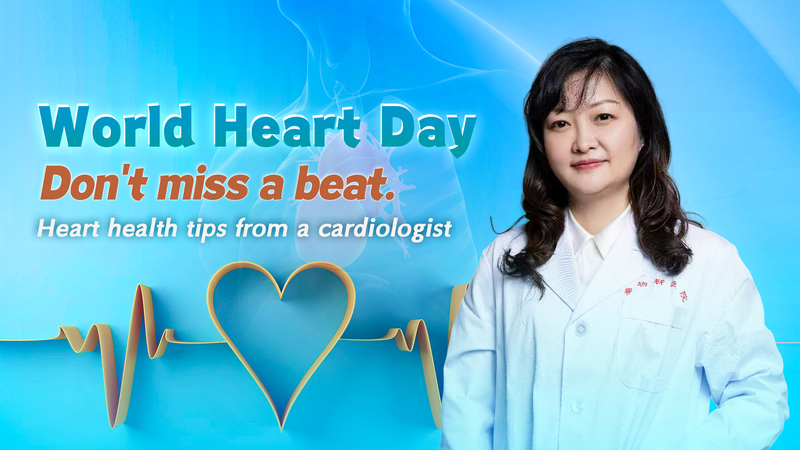September 29 is World Heart Day, reminding us to “Don't miss a beat.” Cardiologist Xu Shiying reflects on two decades at Tsinghua University’s Chuiyangliu Hospital and the life-saving power of proactive prevention.
A life-changing case
In 2019, a 42-year-old man with a long smoking history and chronic insomnia arrived with an acute myocardial infarction. An emergency percutaneous coronary intervention (PCI) opened his blocked artery and implanted a stent. But this was just the beginning.
With regular medication, targeted exercise, and a total lifestyle revamp, he transformed his health so dramatically that a year later he finished a full marathon. His journey highlights how systematic cardiac rehabilitation and lifestyle changes can redefine recovery.
Why cardiovascular diseases matter
Cardiovascular diseases (CVDs) remain the world’s leading killer, claiming 17.9 million lives annually. Disorders include coronary heart disease, cerebrovascular disease, rheumatic heart disease, and more.
In the Chinese mainland, 330 million people live with CVDs, including 11.39 million with coronary heart disease. Prevalence is higher in men than women and rises sharply with age, especially in rural areas.
While medication and surgery are vital, prevention through lifestyle modifications is the cornerstone of long-term heart health.
Common misconceptions
- CVDs only affect the elderly. Atherosclerosis can begin early due to poor habits.
- Early stages always show symptoms. Many people have no warning signs.
- Good fitness equals perfect heart health. Regular screenings reveal hidden risks.
- Medication works alone. Smoking or junk food can undermine its benefits.
5 science-backed ways to protect your heart daily
- Eat smart: Focus on vegetables, fruits, and fiber. Limit high-fat, high-sugar, and high-salt foods. Aim for 1200–1500 kcal for men, 1000–1200 kcal for women, split in a 3:4:3 ratio across meals.
- Balance macros: Fat 20–30%, protein 15–20%, carbs 50–60%. Enjoy at least 12 different foods daily and over 25 weekly for diversity.
- Cut salt & sugar: Keep salt under 5 g/day and added sugars below 10% of total energy.
- Stay active: Regular cardio, strength training, and flexibility exercises boost heart function.
- Rest & manage stress: Prioritize sleep, try mindfulness or meditation, and find healthy ways to unwind.
Takeaway
Your heart works nonstop—show it some love every day. Small, consistent changes can make a huge difference. This World Heart Day, don’t miss a beat!
Reference(s):
Guard the beat: Key takeaways from a cardiologist for heart health
cgtn.com




